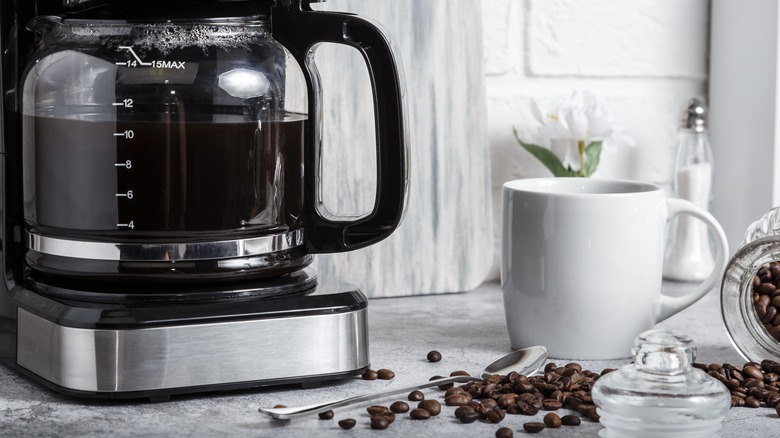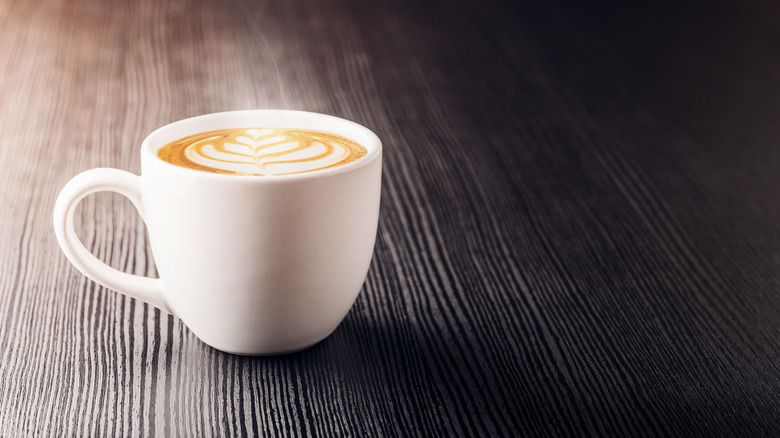Why You Shouldn't Use The Coffee Machine In Your Hotel Room
Kitchen equipment in public places can be questionable, especially if they aren't maintained regularly. A perfect example is a restaurant's ice machine, as one TikToker revealed in a viral video in 2021. While user @jantheman__ filmed inside the machine in question, the state of the water was disgusting, to say the least. "A lot of times people go to a restaurant and get sick, and they think it's food poisoning. Let me tell you—there's a chance it was their ice that got you sick," he said. According to Total Food Service, uncleaned ice machines can potentially contain mold, slime, fecal matter, dirt, dust, numerous viruses, and even small creatures.
You probably expect restaurant menus to contain germs, but you probably didn't know how dirty menus really are. As reported by a 2014 study by Cleaning & Maintenance Management, each square centimeter of a menu can harbor 185,000 germs. "[I recommend customers to] wash their hands or use a hand sanitizer after handling the menu," Kaivac director Matt Morrison said. There's another piece of equipment you should avoid using, though it may be disappointing for some.
The machines often contain mold and bacteria
Vacations can be busy, and exhaustion is normal. That's why many hotel guests reach for their room's complimentary coffee maker for a morning boost. Per YouGov America, 53% of Americans consume one cup of coffee daily, and 79% favor the caffeinated variety (compared to decaf). Of the country's coffee drinkers, the majority prefer their coffee black.
Unfortunately, hotel coffee makers aren't the safest thing to use. Like ice machines, if regular maintenance isn't performed, the equipment can collect germs and bacteria. Because the reservoir remains moist, mold is more likely to form over time. One TikTok user who commonly posts hotel tips explained what you should do instead of opting for the beverage from the coffee maker. "Here's what you should do — always order from room service because they're constantly making fresh pots of coffee and tea," she said. Furthermore, coffee from room service is usually free as well. To be honest, you should also be wary of your home's coffee machine; according to a 2011 NSF International Household Germ Study, 50% of household coffee makers contain yeast in the reservoir.

